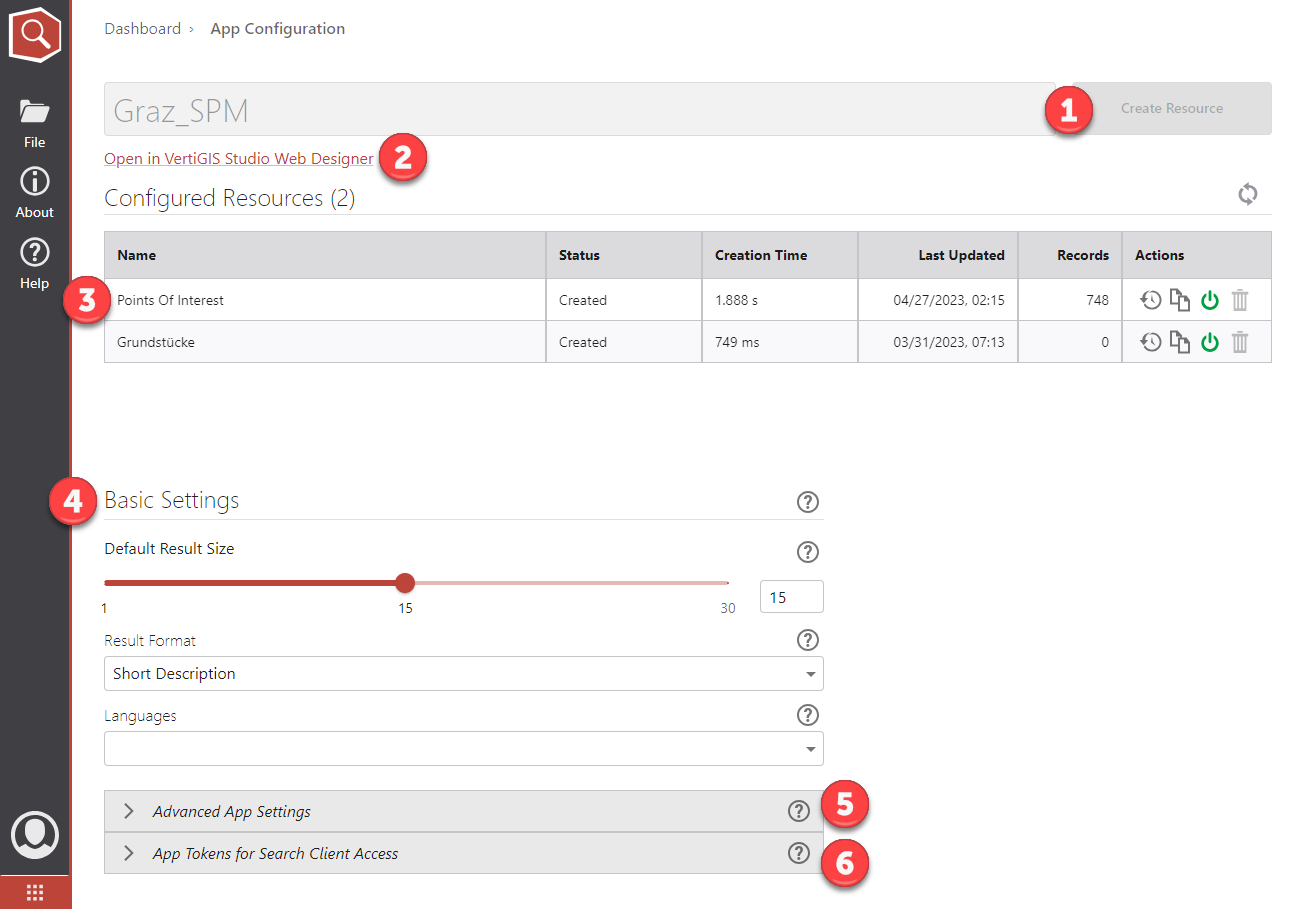Select an app in the Configured Searches section on the Dashboard to open the App Configuration window.

The table below describes the elements of the App Configuration window.
App Configuration Descriptions
No. |
Element |
Description |
|---|---|---|
1. |
Create Resource |
Creates a new resource for your app. A resource consists of a map layer and searchable fields. A Search app can contain multiple resources. |
2. |
Open in VertiGIS Studio Web Designer |
This link allows you to seamlessly switch between the Studio Search Designer and the Studio Web Designer. Note that this only applies to app configurations of the type "VertiGIS Studio Web". For other Search clients that use search app configurations of the type "Blank", no such links will be displayed. |
3. |
Resource List |
Each app contains one or more resources. See Resource Configuration. |
4. |
•Default result size: The maximum number of search results to be returned. The default value is 15. The minimum value is 1. •Result Format: The level of detail for the description of the search result. •Languages: The language(s) to be used for the description of the search results. |
|
5. |
•Fuzziness: A fuzzy search also searches for text that is very similar to a search term. Fuzzy searches find relevant results even if the search terms are misspelled. •No edits: The search results most closely match the search argument. •One edit allowed: The search results match the search argument about 75%. •Two edits allowed: The search results match the search argument about 50%. •Search Mode: Specify the search mode type. •Simple: The first search mode that produces a result is applied. •Combined: The results of all activated search modes are displayed. •Search Operator: The internal search operator defines how a search is performed when multiple search words are entered. The operator AND only returns results that contain all entered search words. The operator OR returns results that match only some of the given search words. •Exact Search Mode: When enabled, the returned search results correspond exactly to the search arguments. •Fuzzy Search Mode: When enabled, the returned search results contain a relevant match to the search arguments. •Like Search Mode: When enabled, the returned search results match the search arguments or are similar. •Wildcard Search Mode: When enabled, the use of special wildcard characters is allowed. •Return Geometry: When enabled, the search result contains the geometry associated with each result. •Return Highlighting: When enabled, the search result set contains information about which part of the search result matches the search argument. •Return Label Point: When enabled, the search result set contains the label point (point geometry) associated with each search result. |
|
6. |
Search Client Access Tokens |
Allows you to create, copy, an delete Search client access tokens. These tokens allow secure access to a given Search app using Referrals URIs. |